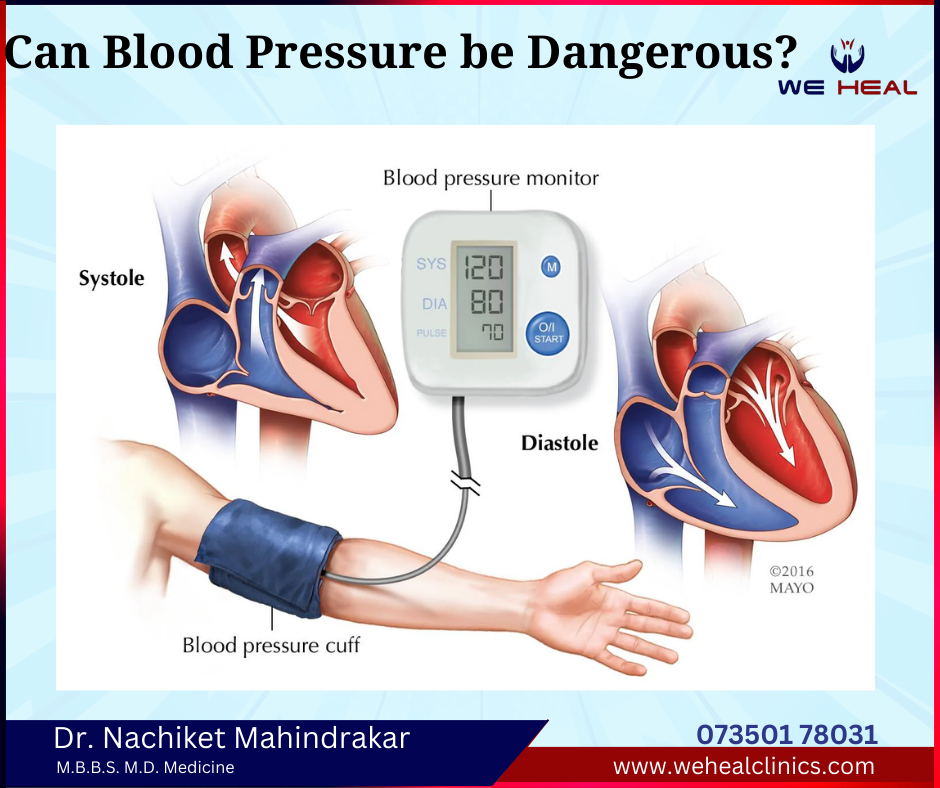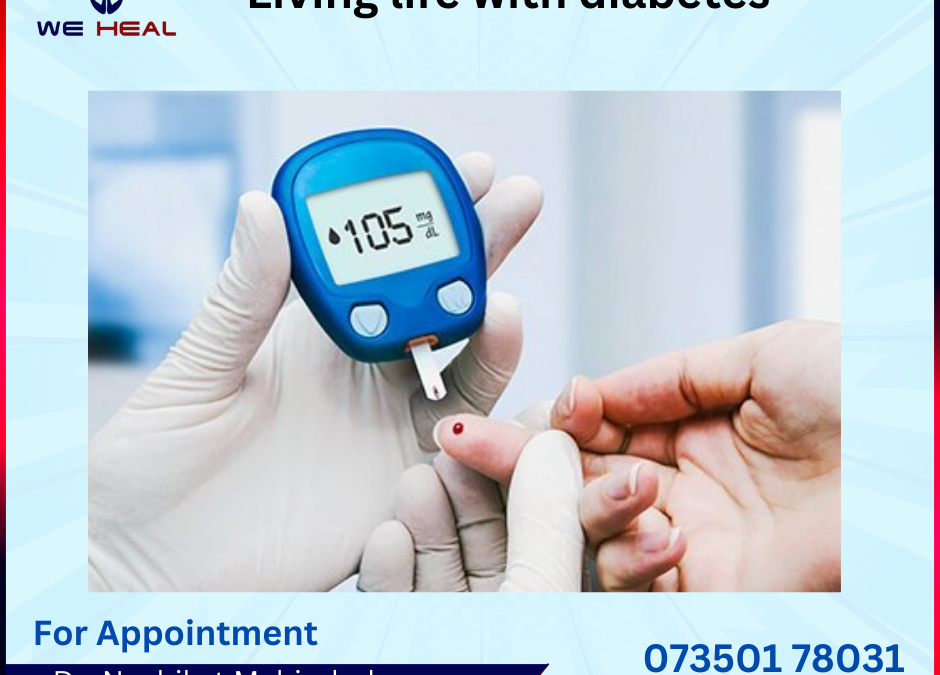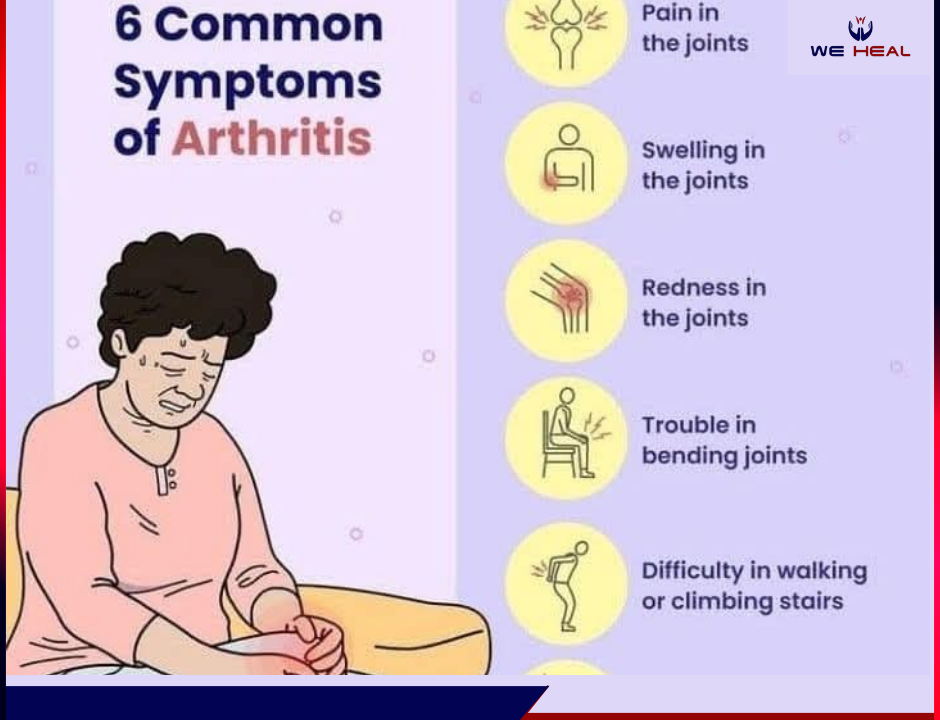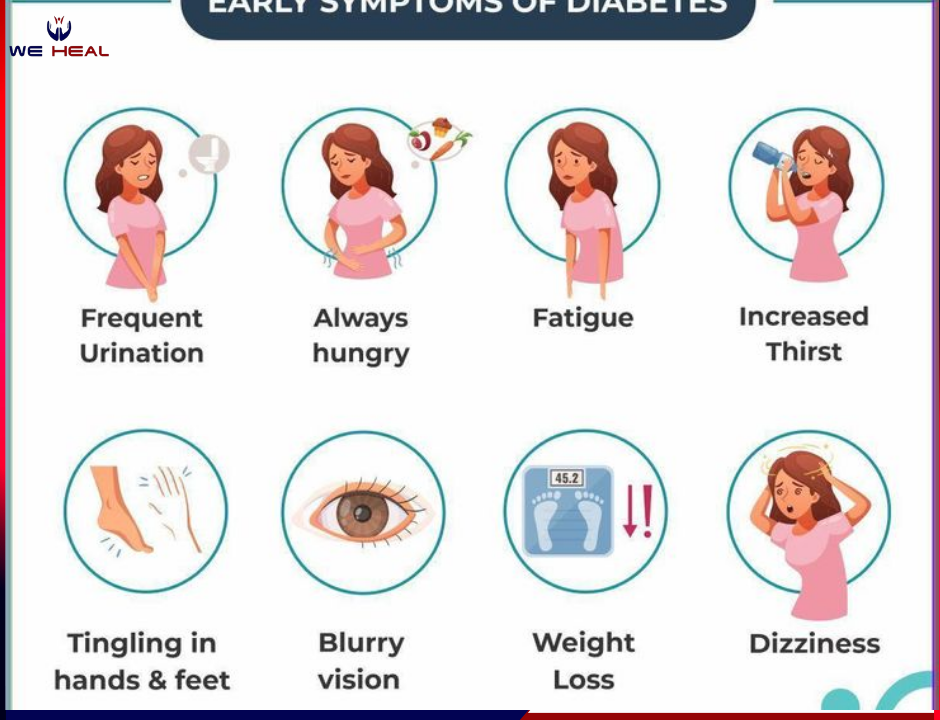
Thyroid: Myths and Facts-Dr Nachiket Mahindrakar
September 7, 2023
Can Blood Pressure be Dangerous?
September 12, 2023Living life can be worrisome if you have diabetes, but hey, everything can be managed with the right steps! That’s why we are here with 4 key points that will help you lead a better life.
- Learn about diabetes.
- Know your diabetes ABCs.
- A for the A1C test
- B for Blood pressure.
- C for Cholesterol
- Learn how to live with diabetes.
- Get routine care to stay healthy.
What is diabetes?
Diabetes is a disease in which your body is unable to properly utilize the energy provided by the food you eat.There are different types of diabetes, some of which are more prevalent than others.
- Type 1 diabetes
- Type 2 diabetes
- Gestational diabetes
Children are more likely to develop type 1 diabetes, and gestational diabetes is a type of diabetes that can develop during pregnancy.
Type 2 diabetes is the most common type of diabetes in the general population, and it often develops from pre-diabetes.
When your blood glucose levels are high but not high enough to be diagnosed as diabetes, it is identified as prediabetes. If you have prediabetes, you may already be experiencing the long-term effects of diabetes on your heart, blood vessels, and kidneys.
ABCs of diabetes
- A for the A1C test – You must keep track of your blood sugar levels over time. You don’t want those to rise too high. High blood sugar levels can be harmful to your heart, blood vessels, kidneys, feet, and eyes.
- B for Blood pressure – When your blood pressure rises too high, your heart has to work too hard. It can cause a heart attack, stroke, and kidney and eye damage.
- C for Cholesterol – LDL and HDL cholesterol are the two types of cholesterol in your blood.
LDL cholesterol, also known as “bad” cholesterol, can accumulate and clog your blood vessels. It has the potential to cause a heart attack or stroke.
HDL, or “good” cholesterol, assists in the removal of “bad” cholesterol from your blood vessels.
Lead a healthy life with diabetes
Adopting a healthy lifestyle can aid in diabetes management. It may also help with key health indicators like weight, blood sugar, blood pressure, and cholesterol.
- Weight management
Type 2 diabetes is difficult to manage if you are overweight or obese. It also raises the risk of high blood cholesterol and blood pressure, which can lead to a variety of cardiovascular problems. Thus, weight loss is recommended.
- Healthy diet
Healthy eating habits, such as portion control and reading food labels, are essential for maintaining a healthy weight and preventing or managing diabetes.
You have additional food issues if you have prediabetes or diabetes. Simple carbohydrates found in foods like table sugar, cake, soda, candy, and jellies, for example, should be avoided. They can raise blood glucose levels if consumed.
- Maintain a food and blood glucose log
You can keep a better track of how foods affect your body by writing down what you eat when you eat it, and how it affects your glucose levels. To see how your body reacts to different foods, check your blood sugar one hour to one and a half hours after eating.
- Managing a busy lifestyle
Many of us are always on the go and rarely spend time at home. Even if your kitchen isn’t suitable, eating well should always be a priority.
You can properly nourish your body wherever life takes you with a little forethought. Keep these pointers in mind when eating on the go:
Bring snacks and healthy lunch to eat throughout the day. This will make it easier for you to stick to healthy food choices and resist the temptation to eat unhealthy foods that are more convenient.
Reduce your caffeine consumption and drink plenty of water. Keep a bottle of water on you at all times so you can stay hydrated.
- Being physically active
Losing 7% of your body weight and being physically active for at least 30 minutes a day can cut your risk of diabetes in half. And as you lose more weight, your risk decreases even more. If you already have diabetes, physical activity and weight management can help you manage the disease and avoid negative health consequences.
- Avoid smoking
Cigarette smoking is the leading preventable cause of death. It’s also the leading cause of premature death that can be changed.
Smoking is even more dangerous if you have diabetes because:
- Nerve damage and kidney disease are more likely to occur
- Smokers are three times more likely than non-smokers to die of heart disease
- Smoke is more likely to raise blood sugar levels, making diabetes management more difficult.
- Stress management
People are affected by stress in various ways. It has the potential to affect one’s emotional well-being.
- From headaches to stomach-aches, it can cause a variety of aches and pains
- Reduce the amount of energy you have
- Disrupts sleep
- Overeating, drinking too much alcohol, smoking, procrastinating, and not getting enough sleep are all unhealthy responses.
- Counting carbohydrates
- Eating foods with a low glycemic index
Get regular health check-ups
Consult with our health care team at least twice a year to detect and treat any problems as early as possible.




